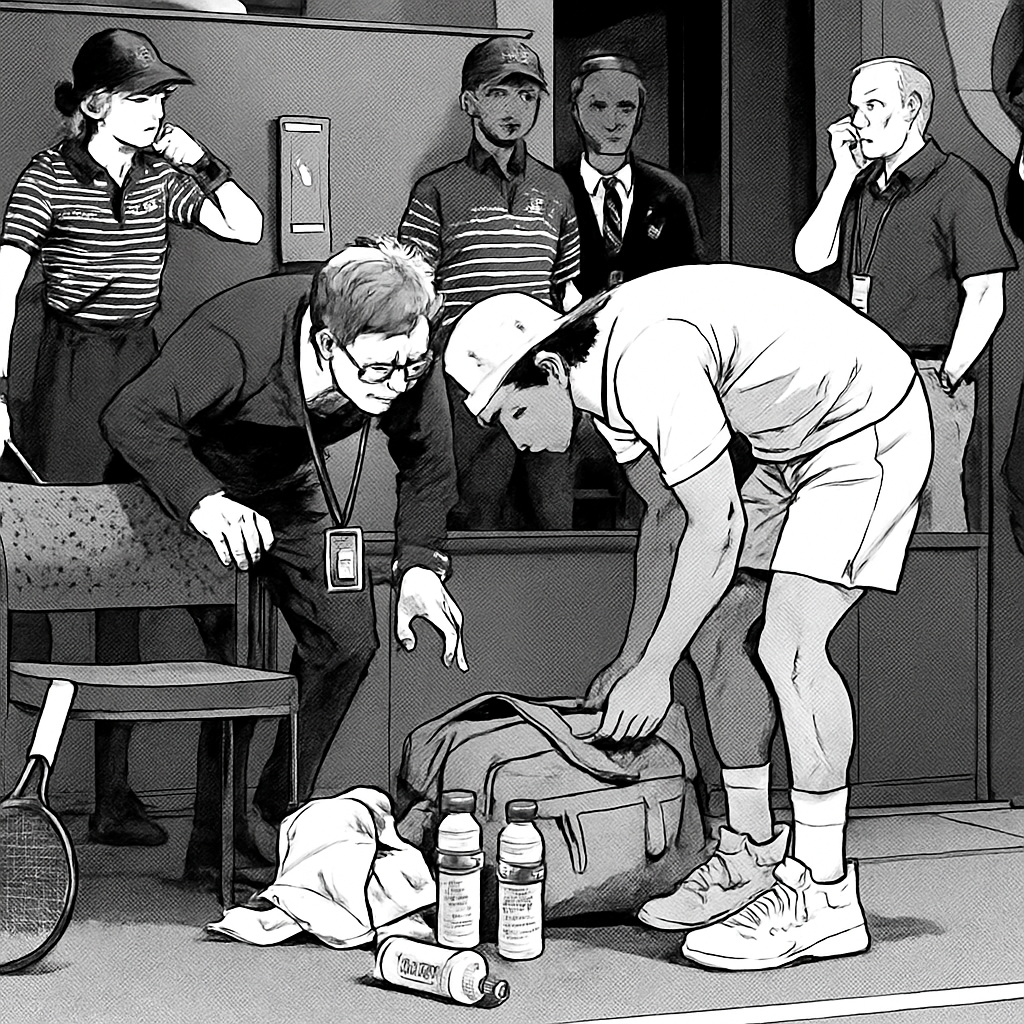LONDON — Wimbledon officials sparked controversy on Tuesday after abruptly pulling British tennis star Harriet Dart off Court 18 mid-match, leaving BBC commentators and fans stunned. The unexpected decision came during Dart’s first-round clash against China’s Zhuoxuan Bai, with the All England Club citing "safety concerns" due to fading light.
The incident occurred just after 9:00 PM local time, with Dart trailing 4-6, 6-3, 4-3. As the match stretched into near-darkness, tournament referees intervened, suspending play despite Dart’s protests. BBC commentator John Lloyd, a former British No. 1, expressed disbelief on air, stating, "I’ve never seen anything like this at Wimbledon. They’ve left Harriet in an impossible position—she was fighting back, and now she has to restart tomorrow. It’s shocking."
Why Was Dart Forced Off Court?
Wimbledon’s official statement cited player welfare as the primary reason for the suspension, emphasizing that visibility had deteriorated to unsafe levels. However, critics argue the decision was inconsistent, as other matches continued under similar conditions. Key factors behind the controversy include:
- Timing: The match had already passed the typical 8:30 PM curfew for outer courts.
- Player Preference: Dart reportedly requested to continue, while Bai did not object.
- Precedent: Previous Wimbledon matches have played later under floodlights on Centre Court and No. 1 Court.
Former Wimbledon champion Marion Bartoli weighed in on social media, calling the move "a disgrace to the spirit of the tournament. If the player is willing to fight, let her play."
Dart’s Frustration and Fan Backlash
Dart, ranked No. 112 in the world, visibly argued with officials before reluctantly leaving the court. Spectators booed the decision, with one fan shouting, "This is her home tournament—let her finish!" The 27-year-old later told reporters, "I felt I had momentum. It’s tough to stop when you’re in the zone."
The Resumption Dilemma
The match resumed the following day, but Dart struggled to regain her rhythm, ultimately losing 6-4, 3-6, 6-3. Analysts noted the disruption favored Bai, who capitalized on the restart. Tennis journalist Catherine Whitaker tweeted, "Wimbledon’s handling of this undermines fairness. Dart was robbed of her chance to close out on her terms."
Wimbledon’s Lighting Policy Under Scrutiny
The All England Club has long resisted installing floodlights on outer courts, citing tradition and environmental concerns. However, this incident has reignited debates about modernization. Key criticisms include:
- Inequality: Only show courts have lighting, disadvantaging lower-ranked players.
- Scheduling: Late finishes force players to adapt to disrupted routines.
- Fan Experience: Ticket holders for outer courts miss conclusions of marquee matches.
A Wimbledon spokesperson defended the policy, stating, "We prioritize fairness and safety. While we understand the frustration, our protocols are applied consistently." Yet, former player Greg Rusedski countered, "Consistency? Then why was Djokovic allowed to play past 11 PM last year?"
Broader Implications for British Tennis
The incident has amplified scrutiny on British players’ treatment at their home Grand Slam. Dart, one of only four British women in the singles draw, faced additional pressure to perform. Sports psychologist Dr. Emma Ross noted, "Unpredictable interruptions like this can shatter a player’s mental focus. The emotional toll is often underestimated."
Meanwhile, the Lawn Tennis Association (LTA) faces calls to advocate for players. British No. 1 Katie Boulter tweeted support for Dart, writing, "Harriet deserved better. We need to address these issues before next year."
Conclusion: A Wake-Up Call for Wimbledon?
The Dart controversy highlights a growing tension between Wimbledon’s traditions and the demands of modern tennis. With players and fans demanding change, the All England Club may need to reconsider its stance on court lighting. As BBC analyst Tim Henman concluded, "This isn’t just about one match—it’s about ensuring fairness for every player, regardless of which court they’re on."
For now, Dart’s abrupt exit serves as a stark reminder of the tournament’s unresolved logistical challenges. Whether Wimbledon adapts or clings to tradition may define its future in an evolving sport.

